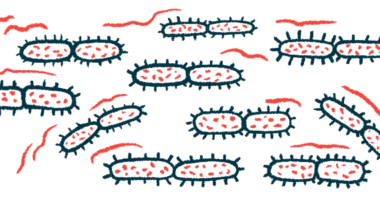NIH funds research into key step of bacterial infection in CF
A Bcc infection is linked to a rapid decline in lung function

A project that dissects the molecular proceses that allow bacteria of the Burkholderia cepacia complex to attach to cells was awarded a $400,125 grant from the National Institutes of Health (NIH).
These bacteria are known to cause serious infections in people with cystic fibrosis (CF).
The grant was awarded to Tung Hoang, PhD, a professor at the University of Hawaiʻi at Mānoa School of Life Sciences with the aim of helping CF patients avoid hospitalizations and enhance their survival.
“Bcc [Burkholderia cepacia complex] infection has been associated with a more rapid decline in CF lung function, increased hospitalizations and significantly decreased life expectancy,” Hoang said in a university news release. “The treatment of Bcc infection is particularly challenging due to intrinsic antibacterial drug resistance.”
People with a weakened immune system are at a higher risk of infections. In CF, mutations in the CFTR gene lead to abnormally thick and sticky mucus accumulating, clogging the airways and creating an environment for bacteria to thrive. Sustained infection and inflammation result in worsening lung disease.
In bacterial infections, bacteria attach to cells as a first step in the process. Targeting this essential step in early infection may prevent disease or help stop its progression.
The new project seeks to show the molecular mechanisms that mediate the interaction between a bacterial attachment protein and its receptor protein in target cells. The researchers will study this interaction in vitro (in the lab) with tissue cultures as well as in animal models, including mice and fruit flies.
“We believe this research has the potential to contribute to our understanding of not only bacterial infections, but also to the development of novel treatments of infectious diseases, by interfering with bacterial surface protein and host receptor protein interaction,” Hoang said.
The project’s findings may have broader applications, since the “host receptor protein is closely linked to multiple malignant cancers and neurodegenerative diseases like Alzheimer’s disease and Parkinson’s disease,” Hoang said. “This discovery is quite unique and interesting.”
The project will be led by Zhenxin Sun, a postdoctoral researcher in Hoang’s lab. Other research interests of Hoang’s lab include vaccine and diagnostic development for diseases associated with bacterial infections.








